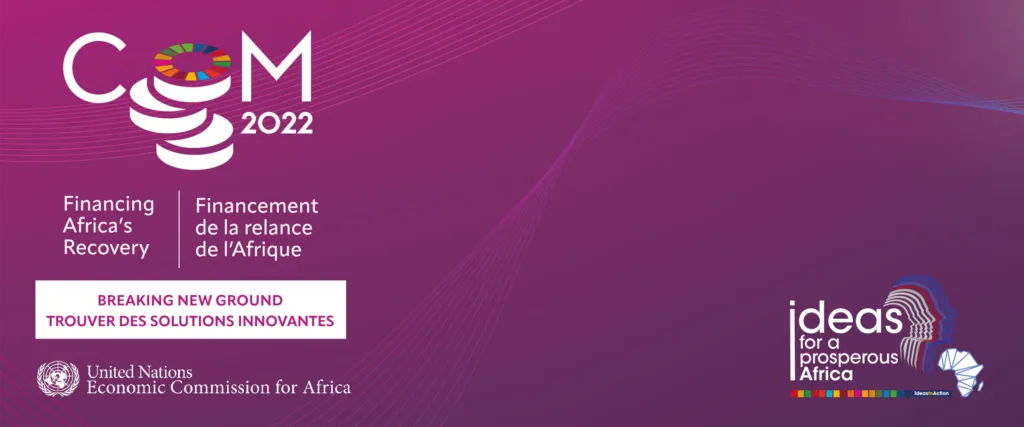The Covid-19 pandemic has reversed two decades of development in Africa, driving an estimated 55 million people into extreme poverty in 2020, said Vera Songwe, Under-Secretary-General of the United Nations and Executive Secretary of the Economic Commission for Africa (ECA).
The continued effects of the pandemic and global shocks to supply chains and commodity prices will widen Africa’s overall fiscal deficits by approximately -1.7% in 2022 and -2% in 2023, according to the ECA.
It is against this backdrop that the 54th session of the Conference of African Ministers of Finance, Planning and Economic Development held a two-day meeting in Dakar, Senegal, under the theme ‘Financing Africa’s recovery: Breaking new ground’.
“It provides the context for us to deliberate on an important topical issue of concern for all our member countries today. It also helps us to examine the challenges and opportunities associated with improving the quality and scale of African development financing to support a long-term recovery from the pandemic, as well as to enhance our resilience to external shocks and volatility,” said Songwe.
Rising inflation
Taking stock of the past year in Africa, Songwe added that foreign debt has increased with currency depreciation making debt servicing more costly and driving up inflation.
However, African GDP rebounded in 2021 as Covid-19 restrictions were lifted, with an estimated growth forecast for 3.6% in 2022.
Trade also appears to have staged a recovery in 2021 despite predictions by the World Trade Organization (WTO) that momentum will be disrupted by the Ukraine conflict.
Indeed, Russia’s invasion of Ukraine has caught African policymakers off guard as they were previously focused on recovering from the pandemic.
Various projections for global GDP growth show a 0.8% to 1% decline in the world economy due to the impact of the conflict.
“This may lead to further job losses as well as higher input costs resulting in lower margins as well as constrained demand. Further, increased investor risk aversion due to the conflict could result in capital outflows from developing nations,” she said.
But it’s not all doom and gloom as “there may be some winners in Africa”, Songwe said.
These include countries that are supplying oil and gas, metals and coal and even some agricultural products to the world.
Songwe reminded policymakers that African countries need to strengthen their efforts to absorb shocks and member states should design targeted social safety nets to mitigate the impact of rising food and energy prices on the most vulnerable.
Region integration is critical
The African Continental Free Trade Area (AfCFTA) must be used to “indutrialise and diversify economies, enhancing regional cooperation and resilience”.
Songwe reminded delegates that “achieving effective regional integration has never been more critical”.
The free trade area aims to eliminate over 90% of tariffs on goods and create a single African market of more than one billion consumers.
The executive secretary said the pandemic has strengthened the coordination and integration of Africa’s healthcare structures, from knowledge sharing to supply chain management.
She noted that in 2020, the former chairperson of the African Union and President of South Africa, Cyril Ramaphosa, launched a key pooled procurement initiative to overcome the continent’s acute medicine supply shortages.
Infrastructure development is, however, critical to the success of the free trade area.
Tackling the financing gap
The rising financing gap significantly constrains Africa’s ability to meet its development needs in critical areas such as infrastructure, health education and climate, said Songwe.
“Africa will need investment of over $3trn in mitigation and adaption by 2030 to implement its nationally determined contributions as per the Paris Agreement on climate change”.
Between $130bn to $170bn is needed for infrastructure, $66bn for health and $39bn to improve access to quality education.
Some of the strategies to shrink these gaps include strengthening tax administration capacities and promoting value addition to curb illicit financial flows and widen the tax base.
Songwe wrapped up her opening address by reminding ministers and delegates that “this year’s Conference of Ministers provides us with an invaluable opportunity to come up with more concrete ideas on financing Africa’s recovery and strengthening our efforts to make Africa a better place to live in”.

Want to continue reading? Subscribe today.
You've read all your free articles for this month! Subscribe now to enjoy full access to our content.
Digital Monthly
£8.00 / month
Receive full unlimited access to our articles, opinions, podcasts and more.
Digital Yearly
£70.00 / year
Our best value offer - save £26 and gain access to all of our digital content for an entire year!
 Sign in with Google
Sign in with Google 



